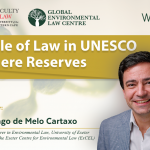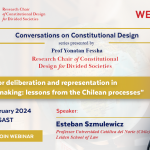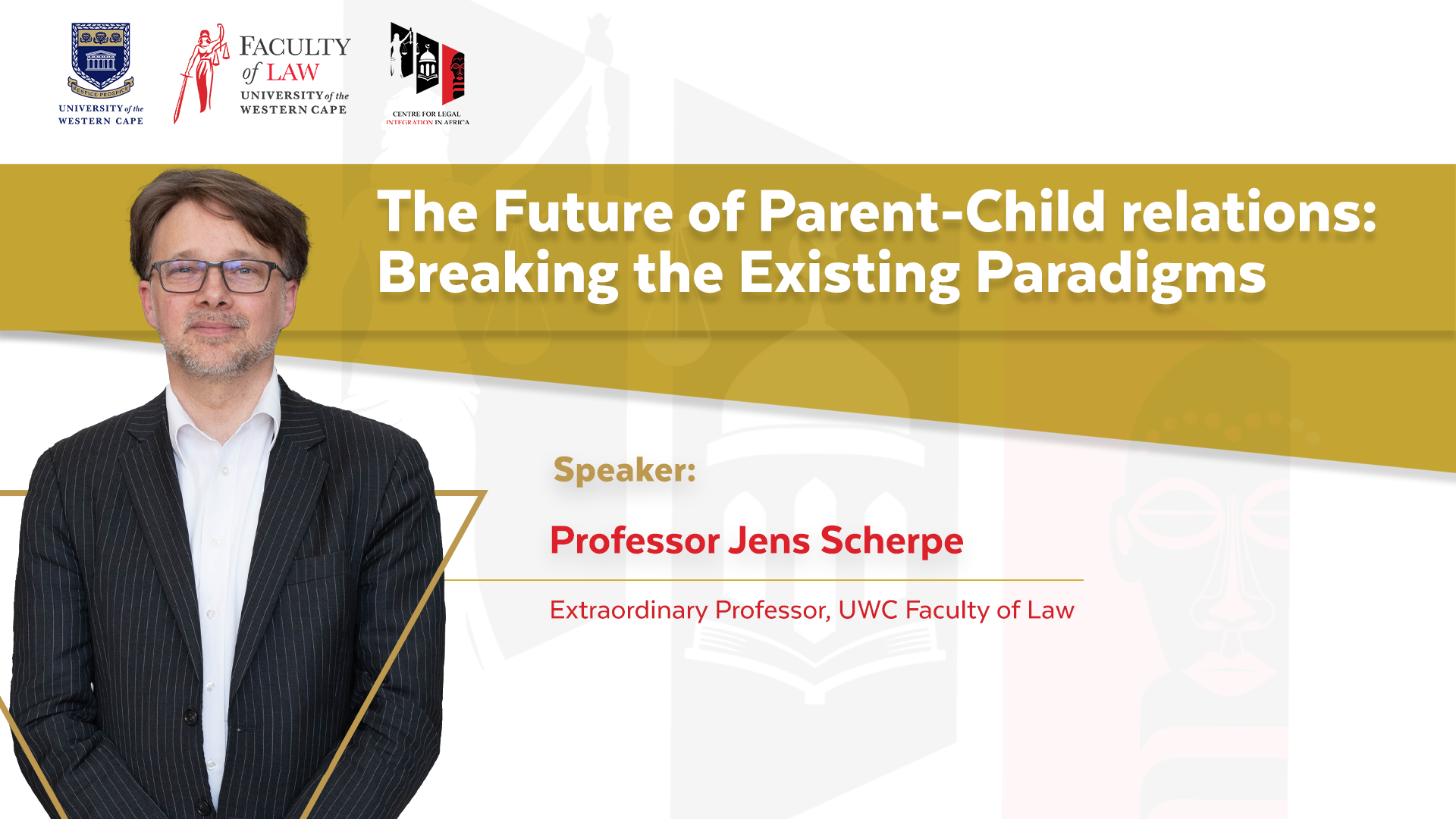
Webinar – The Role of Law in UNESCO Biosphere Reserves
February 12, 2024
Webinar – “Challenges for deliberation and representation in constitution-making: lessons from the Chilean processes”
February 16, 2024
Public Seminar – The Future of Parent-Child relations: Breaking the Existing Paradigms
The Centre for Legal Integration in Africa has received a National Research Foundation of South Africa Human and Social Dynamics in Development grant (HSD210501598549) of R1,173,600.
Date: 13 March 2024
Time: 13:00 – 14:00 SAST
Venue: Kader Asmal Moot Court, UWC Law Faculty
RSVP to mnelson@uwc.ac.za by 4 March 2024
Family law for a long time was only centred on one particular family unit: a man and a woman with children united in (indissoluble) marriage. Yet we now live in a world where marriages often end in divorce; where an increasing number of children grow up in families that do not conform with the ‘traditional’ family; where categories of gender are not as fixed as they used to be; where persons legally classified as men can give birth to children; where some persons are not legally classified as male or female; where children are not necessarily genetically related to (all) their legal parents and indeed may have three genetic parents, and even more social parents. The law has been too slow to react to societal changes and medical advances, and these issues need to be dealt with as a matter of urgency.
This paper suggests that the traditional, gendered allocation of parental positions is outdated, as is the limitation to two persons holding said parental positions. In order to accommodate all existing family forms, the parental position could (and perhaps should) be split into three levels. The first, parentage, should be allocated to those who have a genetic or biological relation to the child (so may include the surrogate). The second, parenthood, is the legal status of being a parent in the narrower sense. The third, parental responsibility, can be allocated to any person having a significant parental function with regard to the child. None of these legal positions by necessity need to be limited to two persons, and the papers suggests that they should not be. While the exact legal consequences deriving from the allocation of parentage, parenthood and parental responsibility of course will be (and perhaps should be) different from jurisdiction to account for societal and cultural difference, breaking up the parental position into these three parts would enable the legal systems to deal adequately with modern family law constellations.
This paper is based on, Scherpe, “Breaking the Existing Paradigms of Parent-Child Relationships”, in: Douglas/Murch/Stephens (eds.), International and national perspectives on child and family law: Essays in honour of Nigel Lowe, Intersentia Publishing, 2018, pp. 343-359.
